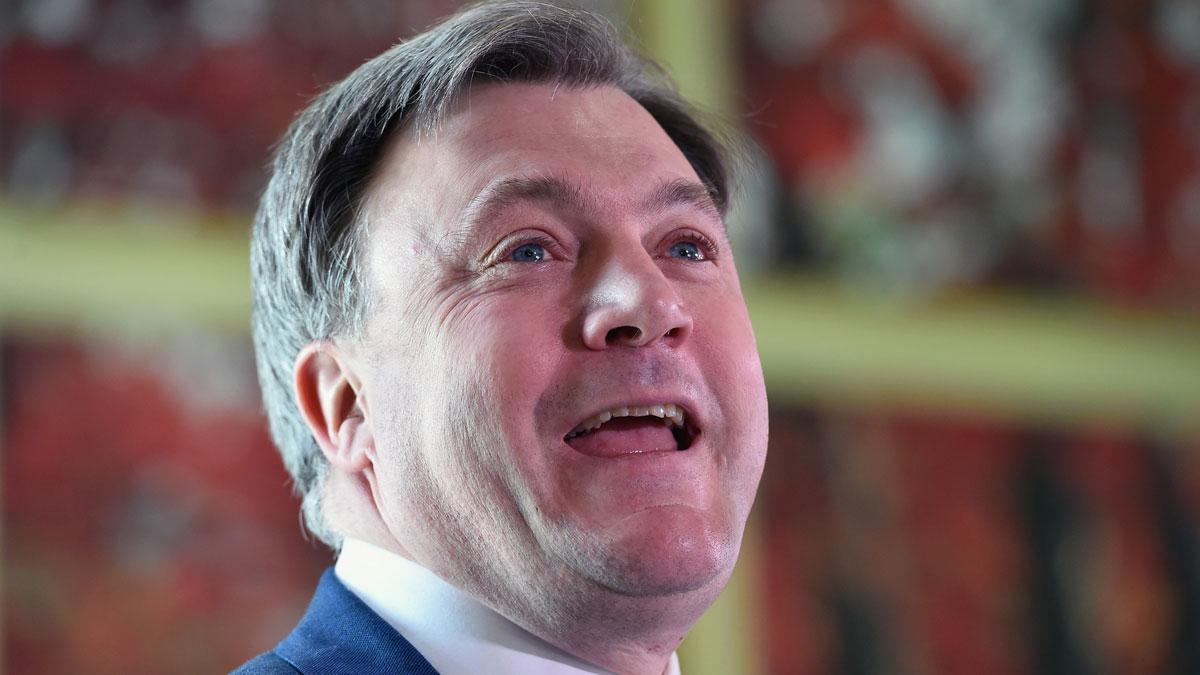Ed Balls calls for Bank of England accountability
Proposals would reduce "burden for maintaining Britain's financial stability"

A free daily email with the biggest news stories of the day – and the best features from TheWeek.com
You are now subscribed
Your newsletter sign-up was successful
Ed Balls, the former Labour shadow chancellor who has found fame this year on Strictly Come Dancing, has returned to the world of economics with a surprise call.
In his first paper since joining Harvard University as a reader last year, Balls and co-authors James Howat and Anna Stansbury say that the independence of central banks like the Bank of England and the Federal Reserve "should be curbed", according to the BBC.
The proposal is being widely presented as a U-turn from an economist who, as an adviser to Labour chancellor Gordon Brown in 1997, was "one of the masterminds behind the Bank’s independence in 1997", says The Guardian.
The Week
Escape your echo chamber. Get the facts behind the news, plus analysis from multiple perspectives.

Sign up for The Week's Free Newsletters
From our morning news briefing to a weekly Good News Newsletter, get the best of The Week delivered directly to your inbox.
From our morning news briefing to a weekly Good News Newsletter, get the best of The Week delivered directly to your inbox.
However, Balls is not suggesting that the government once again assumes responsibility for setting rates – far from it. He insists the "accountability" he outlines would help to protect its operational independence by boosting "political support".
The intervention comes after what was seen as a public spat between the Prime Minister Theresa May and the Bank of England over the distributional effects of its ultra-loose monetary policy.
Balls told the BBC's Today programme that criticism of the policy which has kept interest rates at record lows is misplaced, as it has been "the only thing which stopped our economy sliding back into depression".
He still wants the Bank of England to set interest rates, but identified a "gap" in oversight relating to financial stability concerns that have mostly been left at central banks' doors since the financial crisis.
A free daily email with the biggest news stories of the day – and the best features from TheWeek.com
"The reforms we've seen over the last few years have hugely concentrated power in central banks. I think it's unfinished business," he said.
His paper suggests "a systemic risk body chaired by the chancellor", which would take some of the "burden for maintaining Britain's financial stability" and also have a role in evolving the Bank of England's monetary policy remit.
This would act as a go-between on core functions between the government and the bank, which, he says, would reduce the friction building between politicians on both sides of the Atlantic.
"In Congress, the Fed is being heavily criticised," he said. "We've seen not just MPs attacking [the governor] and the Bank of England, but even our prime minister a few weeks ago slapping Mark Carney down. It's very worrying."
-
 The Olympic timekeepers keeping the Games on track
The Olympic timekeepers keeping the Games on trackUnder the Radar Swiss watchmaking giant Omega has been at the finish line of every Olympic Games for nearly 100 years
-
 Will increasing tensions with Iran boil over into war?
Will increasing tensions with Iran boil over into war?Today’s Big Question President Donald Trump has recently been threatening the country
-
 Corruption: The spy sheikh and the president
Corruption: The spy sheikh and the presidentFeature Trump is at the center of another scandal
-
 Labour shortages: the ‘most urgent problem’ facing the UK economy right now
Labour shortages: the ‘most urgent problem’ facing the UK economy right nowSpeed Read Britain is currently in the grip of an ‘employment crisis’
-
 Will the energy war hurt Europe more than Russia?
Will the energy war hurt Europe more than Russia?Speed Read European Commission proposes a total ban on Russian oil
-
 Will Elon Musk manage to take over Twitter?
Will Elon Musk manage to take over Twitter?Speed Read The world’s richest man has launched a hostile takeover bid worth $43bn
-
 Shoppers urged not to buy into dodgy Black Friday deals
Shoppers urged not to buy into dodgy Black Friday dealsSpeed Read Consumer watchdog says better prices can be had on most of the so-called bargain offers
-
 Ryanair: readying for departure from London
Ryanair: readying for departure from LondonSpeed Read Plans to delist Ryanair from the London Stock Exchange could spell ‘another blow’ to the ‘dwindling’ London market
-
 Out of fashion: Asos ‘curse’ has struck again
Out of fashion: Asos ‘curse’ has struck againSpeed Read Share price tumbles following the departure of CEO Nick Beighton
-
 Universal Music’s blockbuster listing: don’t stop me now…
Universal Music’s blockbuster listing: don’t stop me now…Speed Read Investors are betting heavily that the ‘boom in music streaming’, which has transformed Universal’s fortunes, ‘still has a long way to go’
-
 EasyJet/Wizz: battle for air supremacy
EasyJet/Wizz: battle for air supremacySpeed Read ‘Wizz’s cheeky takeover bid will have come as a blow to the corporate ego’